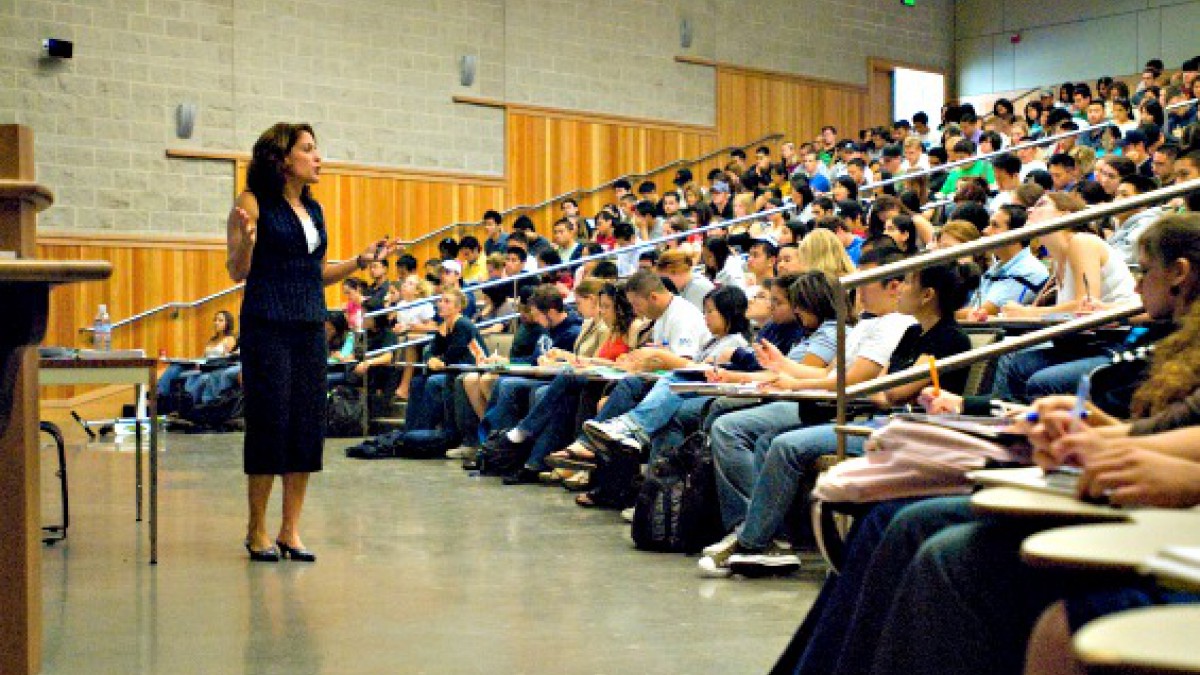There has been much written about the plight of contract or adjunct instructors (often called sessionals in Canada) at colleges and universities across North America. The low pay, the precariousness of living contract to contract, the lack of advancement, and the need to teach so much that research becomes difficult if not impossible have all been documented. Unionizing has been touted as the solution in the United States where adjunct unions are not as common as in Canada. Unions are definitely the first step. However, after unionization three issues remain:
• freedom to publically discuss working conditions;
• the contradictory position of tenured colleagues;
• and the issue of alliances and solidarity.
We must be able to speak our minds not just about the subjects we teach but our own working conditions. Unfortunately, discussing problems in either teaching or working conditions can end our careers. As sessional instructor Andrew Robinson states, “I could be out of job at the end of term for protesting about pay and conditions. And there is nothing anyone can do about it.” There are many impediments to honestly discussing our working conditions:
• Our contracts can simply not be renewed in response to speaking out, yet it may be impossible to prove that this is because we were politically active about our working conditions.
• Many instructors are graduate students. This creates a difficult power dynamic where the sessional is vulnerable in both student and worker roles.
• We all rely on letters of reference from the people who will be doing the hiring next semester; so to speak out against their reliance on exploiting us is problematic at best.
This is where the limits of existing unionism come into play. Sessional and contract instruction is precarious work by nature. Our unions are stuck negotiating language for what is still just a temporary job. In addition, a key benefit of unionization is protection from arbitrary hiring and firing. However, a contract worker that points out that their department is overly reliant on precarious labour can simply not have their contract renewed.
As for our full-time colleagues, they are in the position of hiring us, so we are not equals. Regular faculty are also feeling the pressure from administration to teach more and this pressure is eased by hiring more sessionals and contract lecturers at bargain basement pay. Meanwhile, retirements are more likely to be replaced by a host of sessional positions rather than a tenure position. In this way, our non-contract colleagues are reliant on our exploitation to keep their workload the same. This brings us to the third and perhaps most difficult issue to discuss: who exactly are our allies in this fight against the neoliberal university?
A good litmus test of solidarity is who crosses the picket line when sessional unions go on strike. Language can and should be bargained to ensure faculty can refuse to cross picket lines. However at some universities, the faculty have not bargained this language. In other cases faculty unions end up throwing their own lower ranking members under the bus. Kane Faucher argues, “There are some criticisms of joint unions, such as the belief that a faculty association may only look to protect its full-time members, paying only lip service to part-timers. In such instances, bargaining goals for part-timers might be traded off at the negotiating table.”
Unfortunately, some faculty unions have traded off part-timer rights for their own advantage. For example, the faculty and staff union at the then University College of the Fraser Valley gave up regularization of contract employees in 2001 during a round of concessionary bargaining (regularization is the process where contract lecturers who teach for a certain amount of time, usually two years, have to be converted to full-time workers). On the other hand, Kwantlen University College took the issue to mediation and has consistently fought on behalf of contract faculty. The push against regularization is driven by administrations, not faculty, but it has to be resisted more vigorously by our colleagues.
Solidarity becomes even more complicated when it is the tenured faculty deciding to use contract labour to build their department. A case study of Labour Studies at Simon Fraser University (SFU) is instructive. The average department at SFU operates with approximately 22 per cent of courses taught by sessional labour (this does not include teaching assistants who if included would put the figure closer to 40 per cent). Labour Studies at SFU over the past five years has had 80 per cent of the teaching done by contract labour. It is problematic for any department to build itself by extensive use of precarious labour; however, this practice in Labour Studies contradicts the foundation of the discipline itself, making a mockery of what we teach and what we say we stand for, including good paying jobs and an end to precarious, part-time labour.
So what is the solution? We must insist that sessionals and contract faculty who consistently teach the same courses be offered permanent positions. Right of first refusal is one step but there needs to be a clear path to regularization. Whether they are part of a sessional union or a faculty union, sessionals are doing their part: they are organizing, fighting, and striking. It can’t only be the most exploited members of the teaching community that stand up. Tenured faculty have to do more than sign petitions. They need to demand permanent jobs be created. This would require tenured faculty to be more than just “upset” that the administration only grants them money for sessionals and contract lecturers. Tenured faculty would have to refuse to continue hiring only part-time labour and to stop building departments on contract labour. They would have to commit to fighting against the neoliberal workplace of which they are a part, and not just talking about it.







